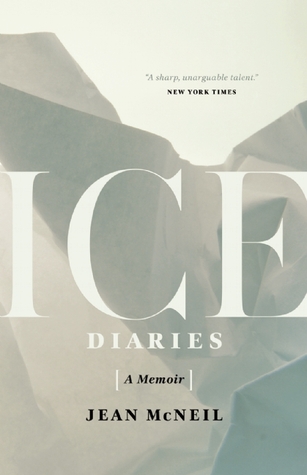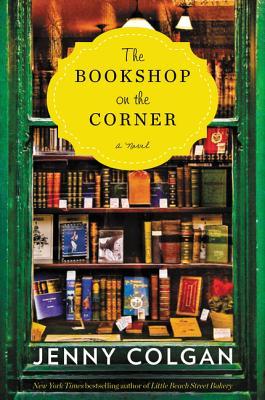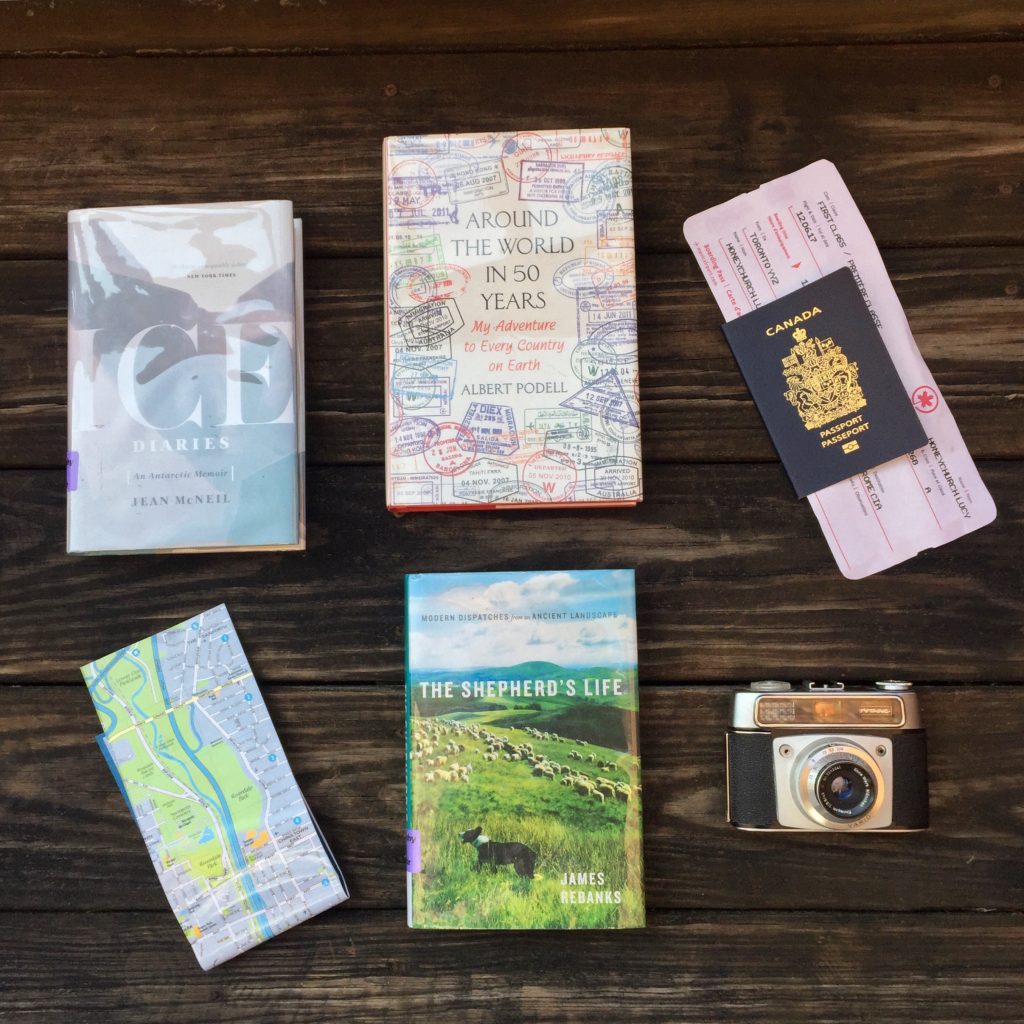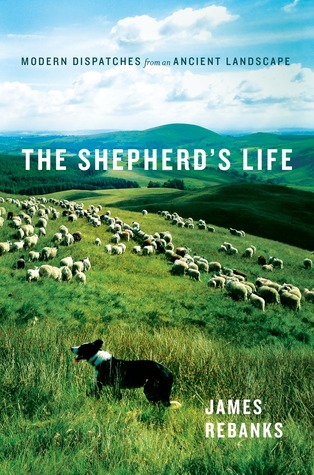 Travel the world from the comfort of your own home, no passport required.
Travel the world from the comfort of your own home, no passport required.
I’m excited to bring you the Armchair Travel edition of the Adult Summer Reads, the entire 15-item list of which you can find on this list on Bibliocommons: VaughanPL: Adult Summer Reads: Armchair Travel.
This installment is the Armchair Travel edition, which will take you around the world from Antarctica to Scotland to… well, around the world, all from the comfort of your very own armchair (armchair not included – you’ll have to provide your own). You don’t have to worry about packing, or the dollar, or your passport, or anything else, which frees you up to simply enjoy the vacation-of-sorts in its entirety. Hurrah!
Now, I’m going to start off with a memoir from Antarctica, because I miss the cold already, before moving on to a fictional town in Scotland. Has anyone else ever wanted to visit the Arctic, or Antarctica?
 In Ice Diaries: An Antarctic Memoir, Jean McNeil is acutely aware of the common thread of death and survival that characterize novels and memoirs alike about Antarctica, being a writer herself and having done research in the form of reading Antarctic memoirs and novels, and this hyperawareness inevitably bleeds into McNeil’s understanding and experience of the South. Determined not to introduce death into the novel* she wants to write about Antarctica, she comes to realize that it would be like trying to flense any experience of the South: part of its beauty lies in the inevitable proximity of death to any sojourn in the Antarctic. And as with travels to isolated places tend to go, Ice Diaries takes us beyond simply Antarctica (and then a short trip to the Arctic): McNeil brings us with her to her past, her thoughts, her diaries. It is as though visitors to the ice continent are forced (if only by constant exposure to the sheer quantity of ice) to scry into the ice itself and meditate upon what has brought them to the continent, and what will either become of them or what it is the ice will make them do. McNeil brings us not only on a journey to Antarctica, but on her own personal journey into her past**.
In Ice Diaries: An Antarctic Memoir, Jean McNeil is acutely aware of the common thread of death and survival that characterize novels and memoirs alike about Antarctica, being a writer herself and having done research in the form of reading Antarctic memoirs and novels, and this hyperawareness inevitably bleeds into McNeil’s understanding and experience of the South. Determined not to introduce death into the novel* she wants to write about Antarctica, she comes to realize that it would be like trying to flense any experience of the South: part of its beauty lies in the inevitable proximity of death to any sojourn in the Antarctic. And as with travels to isolated places tend to go, Ice Diaries takes us beyond simply Antarctica (and then a short trip to the Arctic): McNeil brings us with her to her past, her thoughts, her diaries. It is as though visitors to the ice continent are forced (if only by constant exposure to the sheer quantity of ice) to scry into the ice itself and meditate upon what has brought them to the continent, and what will either become of them or what it is the ice will make them do. McNeil brings us not only on a journey to Antarctica, but on her own personal journey into her past**.
This was a nice mix of fiction, memoir, and diary entries, and I found myself quite looking forward to the sections that deal with McNeil’s past. The entire book almost functions as a scrying glass (scrying ice?), something McNeil mentions throughout the book, through which we can view McNeil’s past and her experiences in Antarctica as they affected her, both during her sojourn and after, as she dreams about the South.
*Ice Lovers, by Jean McNeil. We don’t have it, but it is available in other libraries, from which you can request an ILLO (Inter-Library LOan) through us at this handy link: Inter-Library Loans.
**I’d like to say into her soul, but that sounds a bit too melodramatic. Perhaps it’s fitting, but I still can’t quite bring myself to say it without it being in a note and including a bit of a qualifier to justify its very utterance.
Now, onto some warmer weather Armchair Travelling books!
 The Bookshop in the Corner by Jenny Colgan is available in multiple formats – as a physical book, an e-book, and an e-audiobook – so there should be absolutely no problem enjoying this novel anywhere you go! And Colgan herself gives her readers a number of suggestions, ranging from when taking a bath (though I wouldn’t recommend doing this to a library book) to lounging on a beach (which has its own troubles as it concerns reading, as Colgan details). All this before actually getting to the novel itself, mind.
The Bookshop in the Corner by Jenny Colgan is available in multiple formats – as a physical book, an e-book, and an e-audiobook – so there should be absolutely no problem enjoying this novel anywhere you go! And Colgan herself gives her readers a number of suggestions, ranging from when taking a bath (though I wouldn’t recommend doing this to a library book) to lounging on a beach (which has its own troubles as it concerns reading, as Colgan details). All this before actually getting to the novel itself, mind.
This is a love story. It is a story about Nina Redmond’s love life, which goes from nonexistent to rather tumultuous in a span of not too long, yes, but also about her love of books and how it propels her from an employee culling at a community library branch to becoming the owner of a bookmobile that is almost large enough to warrant a truck license, despite her never having driven a vehicle anywhere near that size before. Losing her job and incurring the wrath of her roommate and friend by bringing home a collection of about-to-be-orphaned books from the closing library, Nina finally gets the motivation she needs to pursue her dream: living, breathing, and selling books, and spreading the love of reading. And when she spots a white van for sale in Scotland, she hops on the first train to the fictional town of Kirrinfief, where she experiences new encounters of every sort, ranging from friendly older gentlemen who frequent the local bar and help her get the van to the sexist van seller to almost being run over by a – wait. I don’t want to give away too much. You’ll have to find out what she’s almost run over by, by actually reading the novel. And while you’re at it, discover the beautiful scenery that is characteristic of Scotland, complete with festivals that mark the winter and summer solstices, as Nina makes her mark around town, spreading books and the love of reading here, there, everywhere (not just in a corner), in The Happily Ever After bookmobile.
It’s a cute, lighthearted story that goes from Nina’s love of books and fictional characters to Nina’s actual love life (which is actually also fictional, this being a novel and all). This is perfect for armchair travel purposes as well as being a novel to bring with you for if you’d like to do some travelling away from your armchair!***
Apparently, this book is also called The Little Shop of Happily Ever After also, which makes a lot more sense to me personally, considering it’s a… bookmobile, and it’s not like it’s always on a corner. I suppose the bookmobile might always be parked in a corner? If anyone could enlighten me, I’m all ears.
***Or, you know… with your armchair. I won’t judge.
The Shepherd’s Life by James Rebanks is available in Large Print format in addition to the regular print edition. It also features sheep. A lot of sheep. Anything else I need to say to sway you? No? I mean, that was enough for me – I don’t know what else to say! Maybe a little something about the book.
Rebanks details a year in the life of a shepherd living in Lake District, England, one season at a time. It’s clear from what he writes that he is passionate about what he does, as well as proud – and I think he has to be, because as he notes, wool isn’t what it used to be. Not that his flock is for the wool necessarily, but sometimes, it costs more to shear the sheep than the fleece itself is worth. Mixed in with the idyllic descriptions that make it more than clear Rebanks is in love with both the lay of the land as well as what it provides, is a frankness that is almost jarring: Rebanks talks about how the sheep (used to?) get dipped into a chemical in order to make them better able to withstand flies and fend for themselves when left to graze in the fells, noting their discomfort whenever this procedure had to be done, and in the same breath says that they were dipping their sheep in a chemical produced to kill men in the First World War. No comment immediately follows as to whether they have since stopped doing this chemical dip, or if they have changed to a more environmentally (and sheep-) friendly dip instead. This is the sort of matter-of-fact tone you can expect from The Shepherd’s Life, and which either appeals greatly to you, or doesn’t altogether.
All in all, it’s a great substitute to leaving the comforts of the city and living off the grid yourself! (Which is not to discourage you from doing so, because that’s kind of the dream, right?) And if you’re into sheep and shepherding, you might enjoy watching Sweetgrass, although I do have to warn you that it’s a very slow film.
Anyway, onto some discussion questions!
Discussion:
- Do you find that you read more armchair travel – or travel in general – books in the summer than throughout the year? Or does winter make you think of warmer climes and have you yearn for sunnier places in your reading?
- Is it actually all just about living vicariously? Or is there something else to it?
- They say that travel broadens the mind. Do you notice a difference between the place authors choose and how it may have affected them (or their characters) in specific ways stemming from the place?****
- The Bookshop on the Corner features a love triangle, which is an oft used trope, in addition to love at first sight (another one). I know Rachel has asked about love at first sight, but how do you feel about love triangles? Do they frustrate you to no end, or does the additional love interest add the tension necessary to drive the novel to its end?
- Another question about The Bookshop on the Corner, for those who have read it (because I don’t want to give it away even if it’s pretty obvious): the gentle guy behind the rough demeanour type. How do you feel about it? Does it bother you that there’s a point in there at which he goes “good thing I don’t talk much, then”?
The Adult Summer Reads Landing Page is also available for your perusal, and once more, if you’d like to take a look at the rest of the items on the Armchair Travel list, take a look below or follow this link: VaughanPL: Adult Summer Reads: Armchair Travel.
****Brownie points for whoever mentions this being a leading question.


Great post, Karen! I too already miss the cold. I never know what to wear in the summer. I find that once the weather starts getting warmer, my urge to travel kicks in and I get really restless at home. I start making lists of all the places I want to see, and I even start checking out travel guides from the library to read up on various places. For example I had a Lonely Planet Denmark book sitting on my desk for about a month that I would peruse, even after deciding it’s not feasible to go to Denmark this year. I’m also making great use of the new Snapchat feature that lets you watch stories from all over the world—I may not be able to get to Northern Europe this summer, but at least I get to see what I’m missing??? I don’t know. In the winter I find I’m perfectly happy to hibernate and basically never leave my bedroom. I like winter so I never wish I was somewhere warmer.
I don’t know if it’s totally about living vicariously, but that’s definitely part of it. For me, it’s getting to learn about somewhere else without having to be there myself. Like the Amazon or the Australian Outback or the Arctic—all places that I think are fascinating but that I don’t necessarily want to visit in person. And reading about places I want to visit doesn’t satisfy my urge, it just makes me want to travel more! If I’m reading a book or watching a movie set in Italy, for example, I just get really frustrated that I’m not currently sitting in a piazza in Rome.
About love triangles, I don’t think there’s anything inherently bad about them. The problem is that they are used so often. People see them as lazy and baity, because they come with by-the-numbers tension. I won’t lie, I roll my eyes when I encounter them now. We’ve hit love triangle fatigue. I think we should, as a society, leave love triangles alone for a while. Let people miss them.